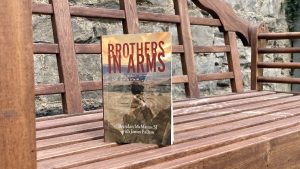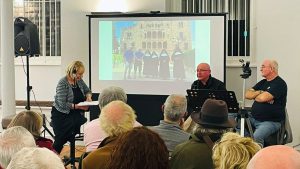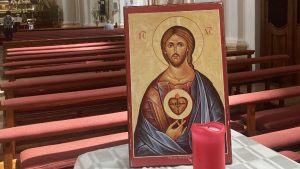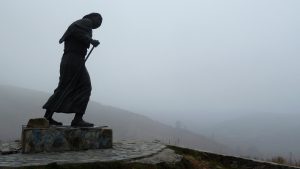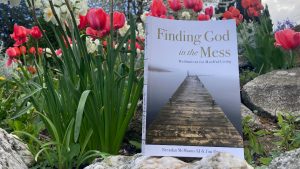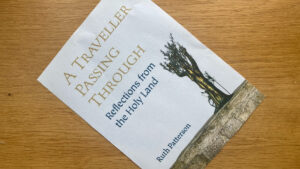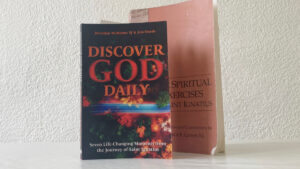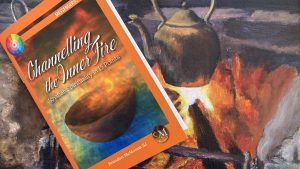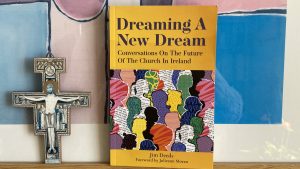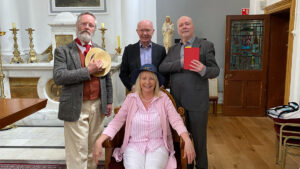Divine inspiration from Fleetwood Mac
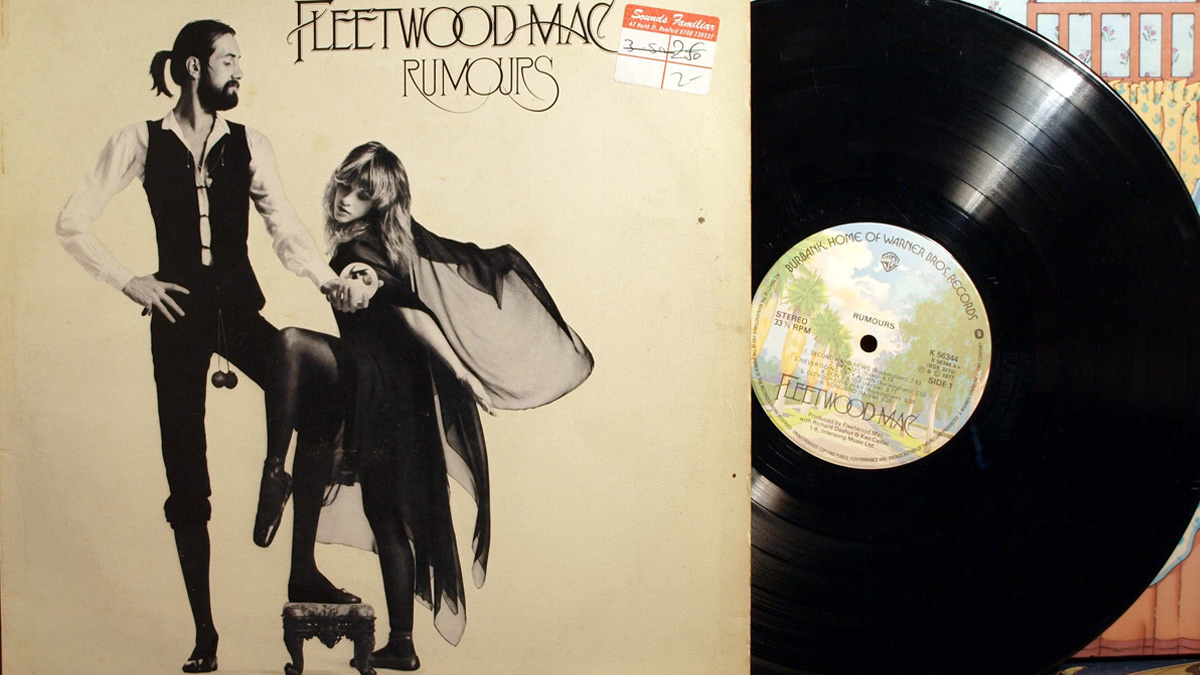
BRENDAN McMANUS :: Divine inspiration from Fleetwood Mac: The meaning from memories
Memory is sharpened these isolation days. My initial one: it’s a hazy sunny morning and I’m driving south from Belfast to Fermanagh on the M1 motorway. There’s only one choice of music, Fleetwood Mac’s Greatest Hits (not an exaggeration in this case). So, as the driving rhythm of Go Your Own Way or Don’t Stop blast out on the stereo, there is a moment of perfect blissful hopeful optimism, everything is going to be all right… so necessary in these Covid 19 dark days.
Inevitably, there is another foundational memory at the base of all this. It is 1978 and I’m struggling to survive boarding school with its bizarre rituals, hierarchies and subjugation. Sent there to work for my ‘A Level’ examinations, it felt like a punishment and an exile from home, a ‘hard station’. Music was an escape and a transcendence of reality, the revealing of hope, possibility and keeping dreams alive. Stevie Nicks’ silky delivery of the lines from Dreams “When the rain washes you clean you’ll know”, has a baptismal, born again quality, that offered the promise of new life. Fleetwood Mac were almost the perfect band, individually accomplished musically, the tightest unit of talents, and yet rendered vulnerable and humanised by personal rifts and the inevitable rock ‘n roll excesses. Rumours indeed.
Born out of this adolescent struggle for independence, meaning and individuality, that album Rumours saved my life. It kept the flame of hope alive in that tiny 6th year student common room where we wore out that vinyl LP that spoke to our aching hearts, trapped in macho posturing, pretense and enforced conformity. Along with an English teacher and a kindly priest that encouraged me, these were the glimmers of hope in dark days where personalities and dreams are forged. Music was the royal road of connection and transportation, reactivating desire and reshaping struggle for expression. Somehow, the seeds of my vocation, the passion for connection and communication were born between those grimy walls. The music combined with the band’s story helped me reject empty ego-based power and posturing, my dream was something more meaningful that would involve helping others. Fleetwood Mac’s songs were like psalms for the oppressed and the weary, transmitting hope on the road to the promised land (Don’t Stop Thinking about Tomorrow would speak to the hearts of Israelite exiles in Babylon). The original British origins of the band was carved out of the blues, anguish rewritten as hopeful lyrics, Peter Green’s legend still exerting its magical influence even today.
Then, in 2014 I caught Fleetwood Mac on their world tour. Inevitably it was a disappointment, a parody almost, the ageing rockers having cleaned up their act. Stevie’s voice was gone, especially the high register, and it almost became a one-man show as Lindsey Buckingham over-indulged his virtuoso guitar skills. Still, it didn’t matter, it was a ‘bucket list’ moment as I listened in the cheap seats. It mirrored my own journey, coming full circle from that teenager in school uniform to the contented priest that I am today, the familiar songs embraced me and spoke to my soul. These were old friends on my journey. The biggest kick was filling in a Canadian sitting next to me on who used to go out with who and the significance of the songs: You Can Go Your Own Way as Buckingham’s hurt-angry riposte to Nicks’ rejection of him, while on Landslide, Nicks and Buckingham’s poignant intimate duo represented a reconciliation of the past.
How has this got anything to do with religion and faith? Well, everything actually. God is in the real lives and relationships, as much in those of these jaded stars as in my own life. One of the greatest theological errors is to assume that I have to become holy and good before God will love me. Paradoxically, like the band, we find ourselves greatly gifted, with life, talent and freedom, which has been freely bestowed on us. What we do with the gift is the question. The great beauty evident in this music, often forged out of suffering, betrayal and loss, is universally appealing. Their lives stand as a kind of parable of the dangers of great talent and wealth, how it can be squandered and lost in indulgence, drugs and excess, and yet how beauty endures beyond the individuals and their inevitable decline. It is a ‘prodigal parable’, highlighting the misappropriation of talent and gift (the shift from ‘look at the gift I have been given’, to ‘look at me’), that seems doomed to a bad end, but is miraculously recovered and transformed by a love greater than the individuals.
There is hope for us all if we can stay faithful to that fragile inner flame and not be swayed by ego or selfish indulgence. Ignatian spirituality captures this tension perfectly in the idea of the soul given enormous freedom and responsibility, facing the inevitable choices and dilemmas of life. It is a spirituality of desire, so prevalent in rock music and our world, which asks the key question: what are your deepest desires that are from God and what are the superficial desires that lead to destruction. Fleetwood Mac’s checkered story reflects both of these in good measure. We have a choice in living, how we cooperate with the ‘good spirit’ of creativity, cooperation and harmony, versus how the ‘bad spirit’ that exploits personal weakness, seeking to divide, diminish and separate. Separating, identifying and deciding well is key, as this world-famous band know now.
You want to know where God is in your life? Recall those moments of great joy and great pain, the agony and the ecstasy. Try to find gratitude for the ways in which your life has been saved from the abyss, the ways angels have watched over you in the bad moments of self-destruction and chaos (as Stevie Nicks says), and how beauty and truth endures despite everything. Our lives are not our own, we have less control that we think, there is some divinely inspired crazy plan at work here.
If you don’t believe me listen to Songbird, written and sung by Christine McVie. She saw this song as a “prayer” about the journey of the band, reminding them about the love they had for each other despite all the hard times they had lived through. It was a vision of unity and solidarity, only possible through a higher, transcendent love. Often a concert-closer on the Rumours tour, it was a reminder to all of the shared love and especially the ‘self-sacrifice of true love’.
——————————————–
This article is based on the Ignatian technique of reflection on personal memories that allows us to draw meaning and purpose out of the past. Read a reflection on this theme here ». The memories that surface, particularly during this Covid 19 crisis, can become the source of consolation, direction and meaning with God’s help.


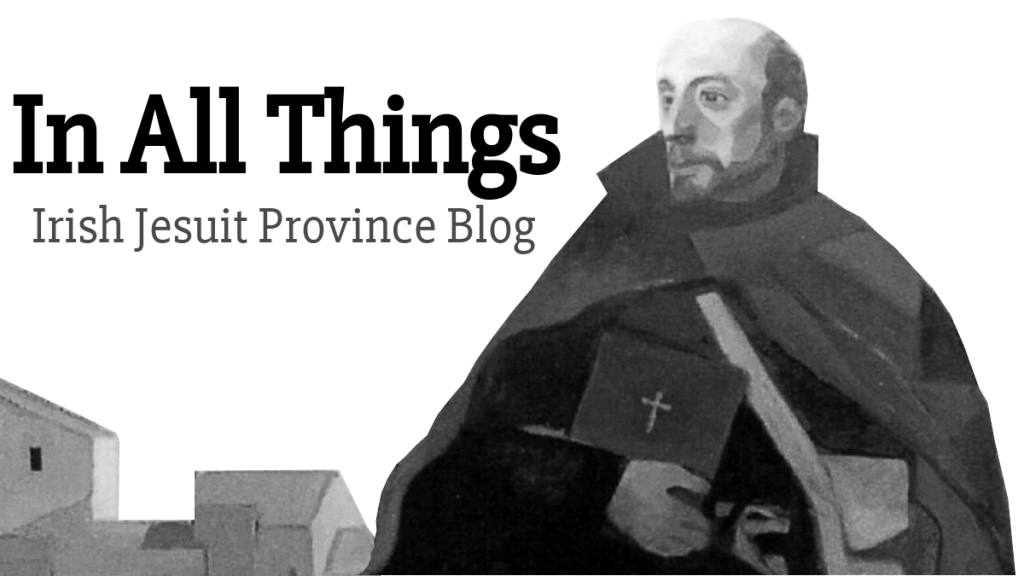
 Fermanagh-born Brendan McManus SJ works in the area of spirituality and spiritual accompaniment. He is the author of Redemption Road: Grieving on the Camino, a highly-praised personal reflection on healing and recovery. It deals with Brendan's experience on the Camino pilgrimage as part of his effort to come to terms with his brother's suicide.
Fermanagh-born Brendan McManus SJ works in the area of spirituality and spiritual accompaniment. He is the author of Redemption Road: Grieving on the Camino, a highly-praised personal reflection on healing and recovery. It deals with Brendan's experience on the Camino pilgrimage as part of his effort to come to terms with his brother's suicide.